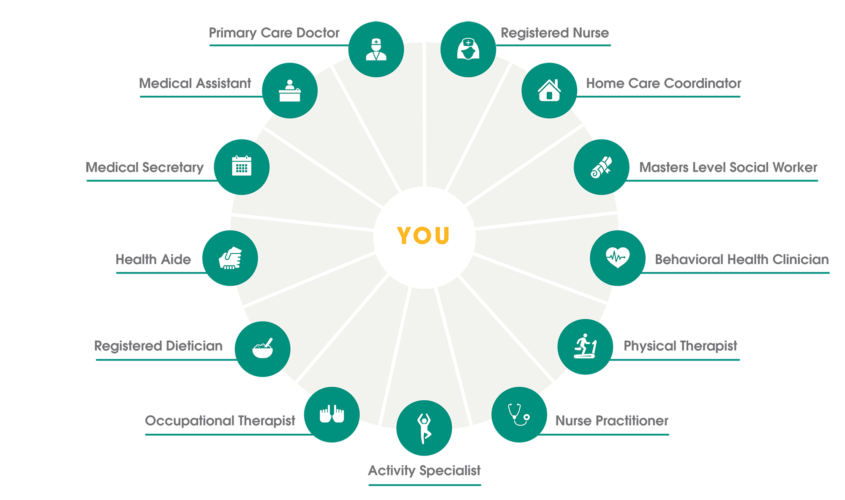Coordinated Care: Why it’s necessary for Elders
I am a 46 year-old medical provider and describe the health care landscape as if we are in a dream sequence where we are running for safety across a tricky and difficult obstacle course only to realize that we are still at the beginning. If I feel this way then one can only imagine how our frail elders are navigating and dealing with the many complex changes. Sad to say many don’t and often their health fails on many fronts because coordination of care is time consuming and difficult. Many of these people feel forgotten or even beaten down by life.
But what if there existed a program that was a one stop shop that provided an interdisciplinary team who worked to not only do this but provide a social experience that many people could appreciate and thrive in?
Element Care practices the PACE (Program of all-inclusive Care of the Elderly) model across 51 cities and town in 8 different sites. It works to take in patients who we call our participants to identify their needs and set up a care plan that is specific to them. I have witnessed the ebb and flow of daily life at all of our Adult Day Health sites. What I can take away from all of this is that the PACE model offers many things to potential participants including medical, behavioral health, social services, activities, home services, transportation and physical therapy to name a few. In my opinion, the most vital is helping improve quality of life through reintroduction of hope. Many theorists have studied how the stressors of both physical and mental nature attack the essence of life creating a culture of negativity which is the quickest path to adverse long-term outcomes. The reintroduction of hope and positivity does more for this than any medication or treatment can.
PACE at Element Care has worked to perfect this and gives older adults the social, mental and physical interaction that has shown to be an integral part of longevity and health.
Written by:
Kenneth Comeiro
Nurse Practitioner at Element Care




